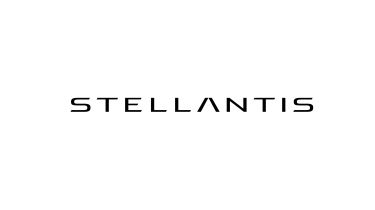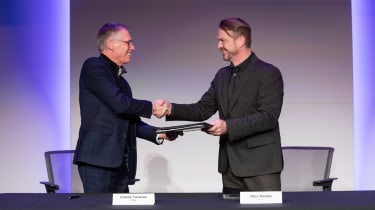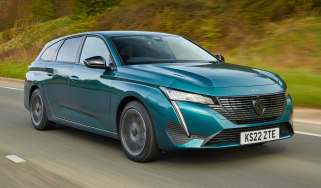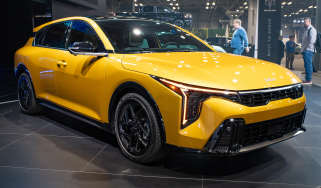Stellantis: FCA and Groupe PSA merger confirmed
Official: merger between two car giants becomes effective as of 16 January 2021

The merger between Groupe PSA and FCA has been finalised creating the world’s fourth largest manufacturer by volume. Carlos Tavares, former PSA boss, will run the newly formed company as CEO, while other managerial positions will be confirmed in the coming days.
The name Stellantis refers to the Latin word “stello,” meaning “to brighten with stars.” Based on the most recent sales figures, Stellantis should have an annual production volume of 8.7 million units, which places the firm behind only the Volkswagen Group, Toyota and the Renault-Nissan Alliance. The newly combined company will also become the world’s third largest manufacturer by revenue, with an annual turnover of €170 billion (£144.3 billion).
• Renault-Nissan Alliance launches cost-saving initiative
The merger looks to be an advantageous move for both parties – PSA will gain access to American markets and FCA may be able to make use of PSA’s newer (and electrified) vehicle platforms. Further opportunities, such as autonomous and connected vehicle projects, may also be in the pipeline.
Ownership of the merged company will be split 50/50 between PSA and FCA shareholders. The former brand’s investors will be allocated a €5.5 billion (£4.7bn) dividend, while the latter firm’s shareholders will receive a reported €3 billion (£2.6bn).
PSA: moving towards the American market
As it stands, the merger could put PSA’s proposed plans to enter the North American market on hold, according to Tavares, given FCA’s strong presence there already. “We see the strength of FCA in North America is outstanding, and we have 12 months ahead [while the merger process concludes] to think about it.”
However, should the US introduce any regulatory changes related to CO2 emissions, PSA would be primed to introduce its low-emission vehicles there. Tavares added: “All the electrification know-how we have developed for the European market would be a very significant asset to bring to the US market for the appropriate level of improvement.”
We’ll have to wait for the first fruits of the merger, but potentially no longer than a couple of years. Mike Manley, former FCA CEO, noted the quick development time of the new Opel/Vauxhall Corsa after the brands were acquired by PSA, saying that “it shows you that, with the speed and the focus, you can actually converge on platforms very quickly.”

Profit, mergers and global partnership trends
FCA had net revenues of €115.4 billion (£99.66bn) on sales of 4.84 million vehicles across brands including Fiat and Jeep in 2018, on which profits of €5bn (£4.3bn) were generated – an increase of 34 per cent over the previous year. Groupe PSA, meanwhile, sold 3.88 million vehicles in 2018, generating €74 billion (£63bn) in revenue and €3.295 billion (£2.844bn) in consolidated net income – which was up 40.4 per cent on 2017.
Car companies are increasingly seeking business synergies and mergers as markets become ever-more competitive and crowded – and regulations continue to make the future of vehicle production uncertain. In April 2019, news broke that FCA would link up with Tesla to share its “pool” of CO2 emissions in order to comply with EU regulations. Ford, meanwhile, will use Volkswagen’s MEB platform to build electric cars from 2023.
Mike Manley, who is expected to oversee Stellantis’s operations in North America, said: "I'm delighted by the opportunity to work with Carlos and his team on this potentially industry-changing combination. We have a long history of successful cooperation with Groupe PSA and I am convinced that together with our great people we can create a world class global mobility company."
Do you think the Fiat Chrysler and Peugeot Citroen merger is a good idea? Let us know your thoughts below...
Find a car with the experts







